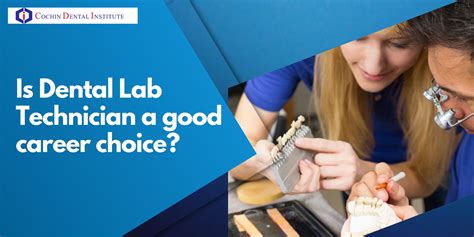Introduction

Dental lab technicians are highly skilled professionals who play a crucial role in the creation of dental prosthetics such as crowns, bridges, dentures, and orthodontic appliances. To excel in this field, technicians require a comprehensive set of technical, artistic, and interpersonal skills. Here’s an in-depth exploration of the essential skills needed for dental lab technicians:
Technical Skills
1. Precision and Accuracy
Dental lab technicians must possess exceptional precision and accuracy to create dental prosthetics that meet exact specifications. This involves using specialized tools and equipment, such as hand files, rotary instruments, and CAD/CAM systems, to fabricate prosthetics with intricate details and precise fit.
2. Fabrication and Materials Expertise
Technicians need a thorough understanding of the properties and applications of various dental materials, including porcelain, acrylics, metals, and ceramics. They must be proficient in processing and handling these materials to produce high-quality prosthetics.
3. Computer-Aided Design and Manufacturing (CAD/CAM)
CAD/CAM technology has revolutionized the dental lab industry, allowing technicians to design and fabricate prosthetics using digital tools. Skills in CAD/CAM software are essential for creating accurate and efficient dental prosthetics.
Artistic Skills
4. Artistic Vision and Dexterity
Dental lab technicians are not only technical experts but also artists. They must possess a strong artistic vision and manual dexterity to create prosthetics that are both functional and aesthetically pleasing. This involves shaping, contouring, and finishing prosthetics to achieve natural-looking results.
5. Color Matching and Shade Selection
Matching the color and shade of prosthetics to a patient’s natural teeth is crucial for restoring a natural smile. Technicians must have a keen eye for color and be able to identify the subtle nuances of dental anatomy.
Interpersonal Skills
6. Communication and Collaboration
Dental lab technicians work closely with dentists, patients, and other lab members. Strong communication and collaboration skills are essential to ensure clear understanding of requirements and to provide timely and responsive feedback.
7. Customer Service Orientation
Customer service is an important aspect of dental lab work. Technicians must be able to interact professionally with patients and dentists, addressing their concerns and ensuring satisfaction with the final product.
Other Essential Skills
8. Attention to Detail
Paying attention to the smallest details is essential in dental lab work. Technicians must be meticulous and organized to avoid errors and ensure the quality of their prosthetics.
9. Safety and Infection Control
Dental lab technicians work with potentially hazardous materials and must adhere to strict safety and infection control protocols to protect themselves and others.
10. Continuing Education
The dental industry is constantly evolving, and dental lab technicians must commit to ongoing education and professional development to stay abreast of new techniques and technologies.
Quantifying the Need
According to the U.S. Bureau of Labor Statistics, employment of dental lab technicians is projected to grow by 8% from 2021 to 2031, faster than the average for all occupations. This growth is attributed to the increasing demand for dental prosthetics due to factors such as population aging and rising awareness of dental hygiene.
Conclusion
Dental lab technicians are highly skilled professionals who require a unique blend of technical, artistic, and interpersonal skills to succeed in this demanding field. Precision, materials expertise, artistic vision, communication, and attention to detail are just a few of the essential qualities that make a successful dental lab technician. By honing these skills and staying abreast of industry advancements, technicians can contribute significantly to the provision of high-quality dental care.
